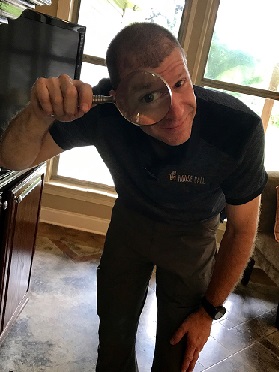Those of you who read my blog on a regular basis will already know that I am a big advocate for increasing your knowledge in your chosen industry. I cannot overstate the importance of belonging to different groups, organizations and message boards, so that you are able to keep up with the happenings in your field. Generally, the more knowledge you acquire, the better off you will be in life as well as business. Distinguished teacher and writer Ronald E. Osborn said it best: “Unless you try to do something beyond what you have already mastered, you will never grow.”

Recently, on a home inspection message board, someone asked a question about testing sinks and tubs in a home. The inspector wanted to know whether or not other inspectors filled up tubs and sinks to see if their overflow lines were functioning. He also wanted to know who was responsible for any ensuing damages resulting from a non-functioning overflow drain. Like most questions posed to this group of several thousand home inspectors, it elicited a wide variety of responses. Some inspectors do this test every time and some do it occasionally, whenever they suspect there may be a problem. The vast majority of inspectors did not perform this test, citing their Standards of Practice (SOP) and the possibility of causing damage to a home which is not yet owned by their client (the home buyer).
My company does not test the overflow drainage systems of sinks and tubs during our visual inspection. My state (Louisiana) SOP does not mandate it, and neither does ASHI or NACHI. We do fill whirlpool tubs for testing, but not to the point of overflow. I do know quite a few inspectors who do, and they are willing to accept the risk that comes with that test (I, however, am not).
As far as the question of liability for damages occurring as a result of an inspector’s actions, that’s a more tricky subject. The best answer that I can give on this questions is “it depends.” In some situations, it is evident that a defect has been covered up or patched over, in the hopes that either the home inspectors wouldn’t find it or the defect could be blamed on the inspector. In these cases, I (usually) don’t pay for the repairs. In other cases, where no defect was present and I was just in the wrong place at the wrong time, I (usually) pay for the repairs.

Notice that I said ‘usually,’ as nothing is ever absolute in business. There will always be extenuating circumstances that can affect your decision (in this case, whether or not to pay for a repair). Refusing to be flexible with your business policies when the situation demands ‘kid gloves’ is a sure way to lose business. But, look on the bright side: you won’t have to worry about making those difficult business decisions anymore when you are out of business!
I welcome all feedback (positive and negative) about my take on this subject. Please leave your comments below. Thank you!
Please Share with Friends!
I thoroughly enjoy creating these posts for you, the reader. Please take a moment to comment, letting me know what you think about the topic, and passing along any of your knowledge to our community. Please feel free to get in touch with me, letting me know if you have any specific topics that you would like to see covered on the site. And please feel free to share this content with your friends. The more people that we can help in their careers, the better!
 Thanks, Joe
Thanks, Joe
